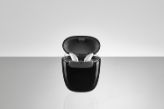Rechargeable Hearing Aids vs. Disposable Batteries
Hearing aids can be a lifeline for anyone living with hearing loss. They help us communicate and navigate the world around us. However, standard disposable batteries that power these devices can create unnecessary stress and hassle.
For this reason, rechargeable hearing aids have emerged as a convenient alternative. You no longer need to worry about running out of batteries or remembering to order new ones. Instead, you can charge your hearing aids overnight, and they'll be ready to go in the morning.
In this article, we'll delve into the technology that powers rechargeable hearing aids and compare it to traditional battery options. We'll also explore how a hearing care provider can assist you in choosing the right device to keep you going without ever missing a beat.
What Are Rechargeable Hearing Aids?
Rechargeable hearing aids are designed for wearers to charge and use daily, eliminating the need to replace disposable batteries frequently.
Rechargeable batteries are typically built into your hearing aids so you can charge them like wireless earbuds using a docking station, charger case or USB cable.
How They Work
Rechargeable hearing aids are powered by Lithium-ion batteries, which are the same type of batteries found in smartphones and other electronic devices.
- Your hearing aids will give you a warning signal when the batteries are low.
- When your hearing aid batteries run low, you'll need to place them into their charging station connected to a power source.
- Read all manufacturer's instructions carefully to ensure you insert the hearing aids correctly to begin the charging process.
- Remember that the charging time may vary depending on the model and how much charge is left in the battery.
Once charged, the hearing aids can be used for several hours or even days, depending on the model and your usage.
Some manufacturers recommend charging your hearing aids every night, so talk to your hearing care provider if you have questions or need tips on properly caring for and maintaining hearing aids.
Benefits of Recharging Your Hearing Aids
With rechargeable hearing aids, you don't need to worry about carrying spare batteries or running out of power at an inconvenient time. You can simply charge your hearing aids overnight and be ready in the morning.
In addition to their convenience, let's review a few other noteworthy benefits:
As mentioned, rechargeable hearing aids use lithium-ion batteries, which have a longer lifespan and charging capacity than one-time use batteries.
Depending on the brand you choose, your hearing aids may also be equipped with power-saving features that help extend battery life, such as mobile notifications that you're running low, automatic shut-off, or low-power modes.
Other Types of Hearing Aid Batteries
There are different types of disposable hearing aid batteries available on the market, which are classified by size and color. Starting from the smallest size to the largest, the most common types of hearing aid batteries include:
- Size 10 (yellow)
- Size 312 (brown)
- Size 13 (orange)
- Size 675 (blue)
Each battery size is designed to fit different hearing aids, and their lifespan can vary depending on factors such as the hearing aid model, battery capacity, and usage.
Typically, disposable hearing aid batteries can last anywhere from three days to seven days, depending on how frequently the hearing aids are used and the amount of power required.
It's important to keep spare batteries on hand and to monitor the battery level regularly to avoid running out of power at an inconvenient time.
Start your journey to better hearing with Amplifon
-
6,000+ National providers
![clinic locations]()
-
Average of 68% off MSRP*
![cash]()
-
60-day risk-free trial**
![hearing aid]()
-
Free follow-up care**
![care]()
Restore the sounds of your life today!
Use our online tool to check your benefits, and connect with a local provider.
We appreciate you reaching out to us.
Our hearing care advocates will call you shortly and help answer all your questions.*Based on 2024 internal pricing analysis. Your savings may vary.
**Care package details vary by plan. Exclusions and limitations may apply. Separate care packages may be available through your provider. These care packages are not included in your Amplifon benefit and may result in additional out-of-pocket cost. Contact Amplifon (888-713-7659) for details.
Good hearing matters





